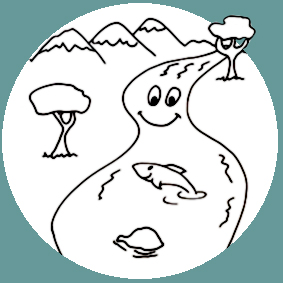We’ve all noticed that “stakeholder” is being more frequently used in part due to the rise of ESG issues. A recent article by the Economist magazine bore the headline
while a Financial Times article mentioned
In addition, the Santander ESG supplement for 2020 uses the term 17 times but never actually defines it. Given this, can we really appreciate the implications of its policies?
And where does the river come into it?
That, in fact, is an important question.
What Is a Stakeholder?
Generally speaking, in a business context, a stakeholder is a party that has an interest in a company’s decisions as it can either affect or be affected by the business. This means the primary stakeholders in a typical company are its clients, providers, employees and investors. Indeed, in company speak, stakeholder is often used to refer to a particular shareholder that has sufficient shares for their votes to be able to affect company decisions.
However, the term stakeholder is also used in political contexts with increasing attention on any person or organization that has a legitimate interest in a specific project or policy decision. Consequently, stakeholders can also include governments, communities and trade organisations. This raises the question of whether narcos should be considered stakeholders in government policies as, while they are clearly affected by a drug policy, their interest is presumably not considered legitimate. ?
In 2017 the Whanganui river in New Zealand was granted the same legal rights duties and liabilities as a legal person in recognition of the deep spiritual connection between it and the Whanganui people. The Ganges and Yumuna rivers and their related ecosystems have also been declared by a court in India to have the status of a legal person, and in early July 2019 Bangladesh became the first country to grant all of its rivers the same legal status as humans. Does this imply that they are considered to be stakeholders?
Back in March 30, 2011, the Provincial Court of Justice of Loja in Ecuador had already ruled in favour of nature, and more particularly the Vilcabamba River, stating that
The construction company implicated by the related court ruling did not respect it, the NGO representing the river could not afford the costs of the ensuing legal battle so, in the end, the ruling was not upheld, but surely this is already an example of a river considered to be a stakeholder?
And should anyone believe these concepts are just for the green warriors, consider this comment from Michel Jabre, of Jabre Capital as quoted in the Financial Times
Many talk down ESG issues rightly saying that there are no established rigorous criteria that can be applied to compare investments. Could defining stakeholder be a good starting point for the EU taxonomy for sustainable activities?


